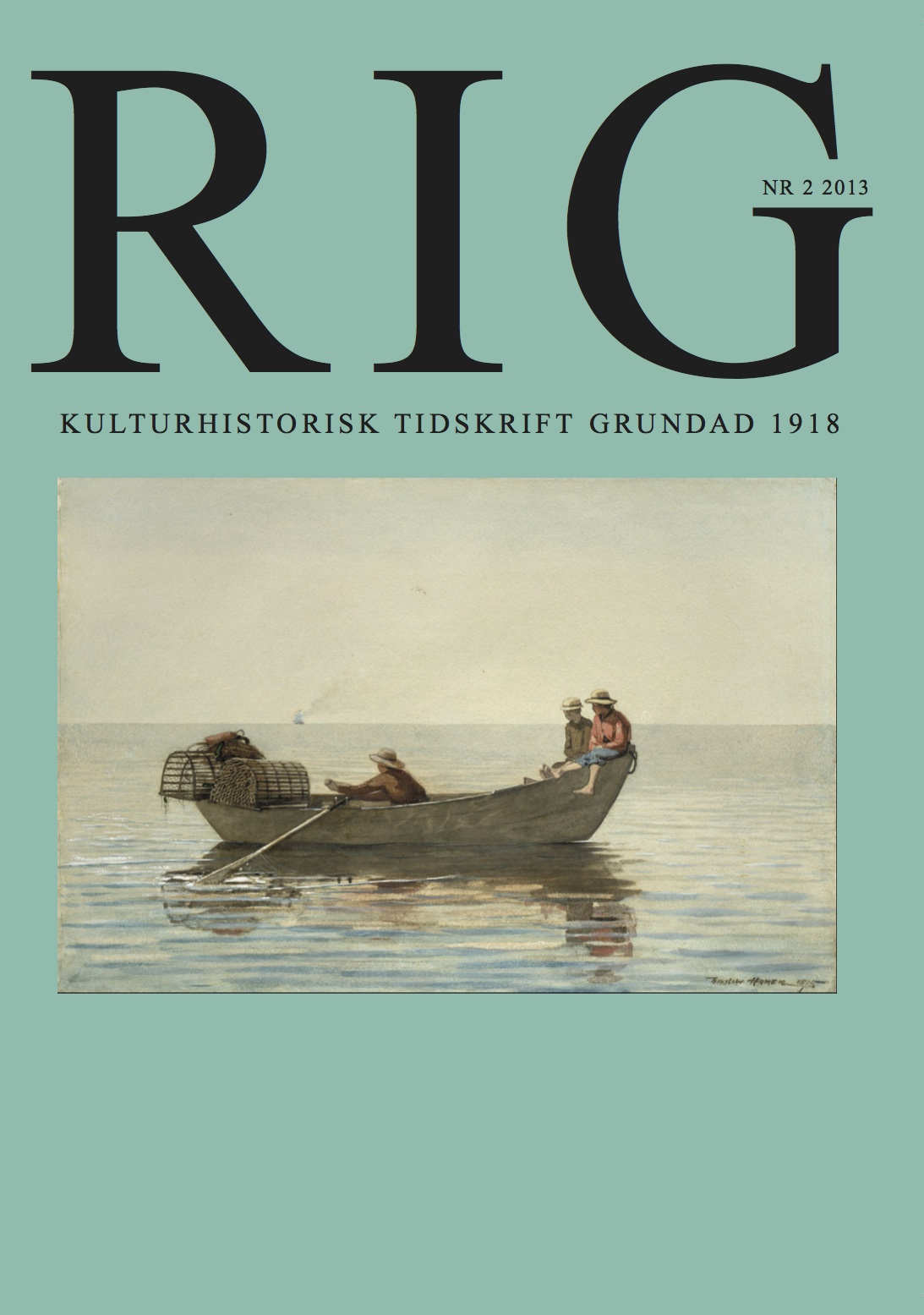”Vi måste taga de olyckliga till våra hem och hjärtan”. Frälsningsarmén och gästfrihetens gränser
Abstract
“We must bring the unfortunates into our homes and hearts”. The Salvation Army and the Limits of Hospitality
The aim of this article is to examine how the imperative of hospitality materialised within the framework of the Salvation Army’s social work at the turn of the 20th century. In order to deal with the moral inferno of the towns, the organization established a protective rural border zone round its rescue homes and slum stations. Hospitality was characterised by a romantic notion of nature as a pure place and that people, by being there, could come closer to a feeling of Paradise.
In rescue homes, slum stations and crèches that did not have the opportunity to create such a border against sin, the boundary between moral–immoral was upheld in other ways. By bringing forth the colour white in the organisation’s social practice a boundary was created between the slums’ darkness, as the white apron made it possible for the slum sisters to act among the stigmatized without them getting dirty, in a symbolic sense.
In the article yet another field of tension concerned with hospitality has been examined – namely that of the gift and the gift in return’s cultural importance and the tension that this brings about. Studies of traditional societies show that gifts confirmed and established social bonds between giver and receiver, but there was also a demand for reciprocity. Signs of gratitude can be regarded as a gift in return in the moral economy of hospitality. They confirmed that the Salvation Army’s important work did bear fruit. When no signs could be discerned then sanctions and exclusion contrivances were put in place. Hospitality thus had its boundaries, even in the social work of the Salvation Army at the turn of the century in 1900.

